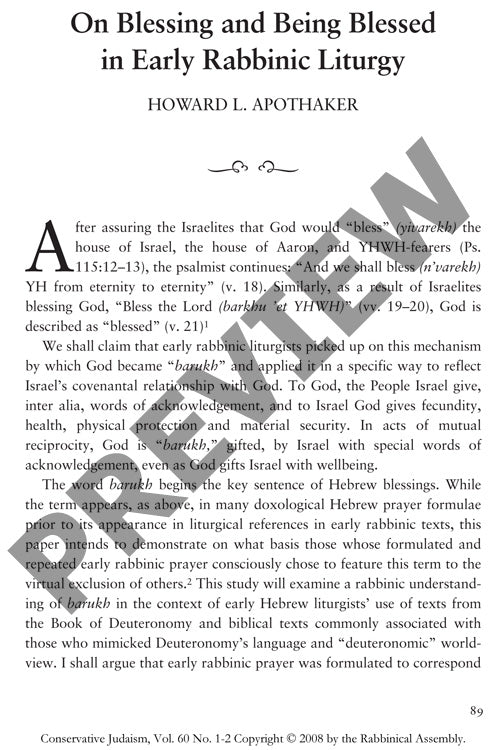On Blessing and Being Blessed in Early R
Couldn't load pickup availability
The Hebrew word "barukh" (blessed) emerges as a pivotal term in early rabbinic liturgy, reflecting a profound theological understanding of covenant as mutual exchange between God and Israel. Early rabbinic liturgists deliberately selected this term over other praise expressions (y-d-h, h-l-l, sh-b-h) because of its unique transitive properties - it alone could express bidirectional blessing flowing between divine and human realms. Analysis of early rabbinic liturgical texts, particularly in Mishnah Tamid 5:1 and related sources, reveals extensive borrowing from Deuteronomic literature and its theological perspectives in constructing prayer formulations. Through examination of linguistic and thematic parallels between rabbinic blessings and Deuteronomic texts, combined with analysis of the Hebrew root b-r-kh in biblical usage, this research traces the development of what E.P. Sanders terms "covenantal nomism" in liturgical contexts. The findings demonstrate a sophisticated framework of reciprocal gifting: God provides material benefits (fertility, protection, prosperity) while Israel offers verbal acknowledgment and praise. Rather than mechanical adoption, the prominence of "barukh" in early rabbinic liturgy represents conscious crafting of prayer language to embody fundamental religious concepts, specifically the bilateral nature of covenantal obligation and reciprocity.

More Information
-
Physical Description
-
Publication Information
Published 2007-2008
ISBN
-
Publication Credits
Howard Apothaker

